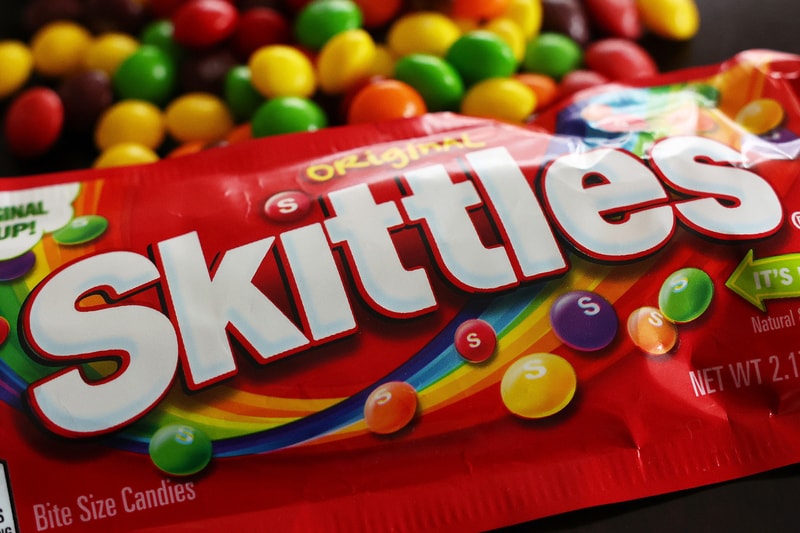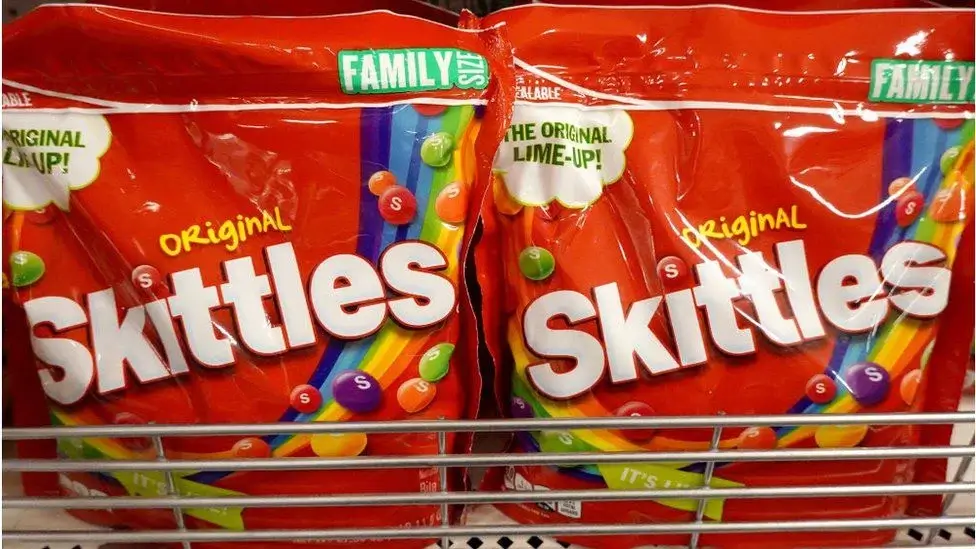“Gov. Gavin Newsom on Saturday signed the law misleadingly known as the “Skittles ban,” which will prohibit the manufacture and sale of four chemicals used in as many as 12,000 food products.”
California became the first state in the nation to ban the use of four food additives commonly found in thousands of products across the United States, including cereals, sodas and candies.
Gov. Gavin Newsom on Saturday signed the law misleadingly known as the “Skittles ban,” which will prohibit the manufacture, sale or distribution of brominated vegetable oil, potassium bromate, propylparaben and Red Dye 3. The four chemicals are used in as many as 12,000 food products across the country despite never having been approved for consumption by the Food and Drug Administration, according to the Environmental Working Group.
Advocates have long expressed concerns about the potential health problems that can be caused by eating products containing the additives, which other countries have already banned.
In a marking message, Newsom said the law is a “positive forward-moving step” until the FDA surveys and lays out public guidelines on the utilization of the four added substances. The law produces results in 2027 to give organizations time to update their recipes to bar the “hurtful synthetic substances,” Newsom said.
“Californians believe that the food items they eat are protected,” Newsom said in his articulation. “I value the creator and partners for chipping away at changes, which advance our common general wellbeing targets while keeping up with shopper decision.”

Food Additives: Health Concerns Spark Opposition
Most chemicals added to food and packaging are meant to enhance flavor or appearance or are simply to preserve freshness.
While most are safe to eat, Consumer Reports and other advocacy groups say the four food chemicals included in the California Food Safety Act have been linked to a number of serious health concerns. Red Dye 3, for instance, has been found to cause cancer in animals, although there is not enough research linking the additive to cancer in humans.
Yet, the utilization of Red Color 3 − prohibited from beauty care products in the U.S. beginning around 1990 − in food has evoked resistance in any case.
Shopper Reports, a promotion and exploration not-for-profit, recently approached the creator of Peeps confections to quit involving Red Color 3 in its items. Moreover, the Middle for Science in the Public Interest, a buyer food handling association, was among 24 gatherings and researchers that joined Customer Reports in beginning a request the previous fall approaching the FDA to eliminate Red Color 3 from the rundown of endorsed variety added substances in food sources, dietary enhancements and oral meds officially.
The synthetic substances prohibited by the California Sanitation Act haven’t been surveyed by the FDA for 30 to 50 years, if at any point, as indicated by Shopper Reports, which co-supported the bill with the Ecological Working Gathering.
“We’ve known for quite a long time that the harmful synthetic substances prohibited under California’s milestone new regulation posture serious dangers to our wellbeing,” Brian Ronholm, overseer of food strategy at Buyer Reports, said in an explanation. “California has taken a significant represent sanitation when the FDA has neglected to make a move.”
California law became known as the 'Skittles banned'
The legislation became known as the “Skittles ban” because an earlier version also targeted titanium dioxide, a coloring agent found in candies including Skittles and M&Ms, as well as some dairy products such as Kraft fat-free shredded cheddar cheese.
Last year, a California man sued Skittles manufacturer Mars Inc., saying the candy is “unfit for human consumption” because it contains the substance. Mention of titanium dioxide was removed, however, when the legislation was amended in September.
Democrat Assemblyman Jesse Gabriel, who wrote AB 418, praised the bill’s passage into law as “a huge step in our effort to protect children and families in California from dangerous and toxic chemicals in our food supply.”
“It’s unacceptable that the U.S. is so far behind the rest of the world when it comes to food safety,” Gabrial said in a joint statement with Consumer Reports. “This bill will not ban any foods or products − it simply will require food companies to make minor modifications to their recipes and switch to safer alternative ingredients that they already use in Europe and so many other places around the globe.”

